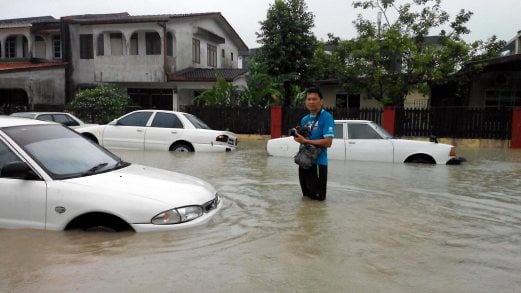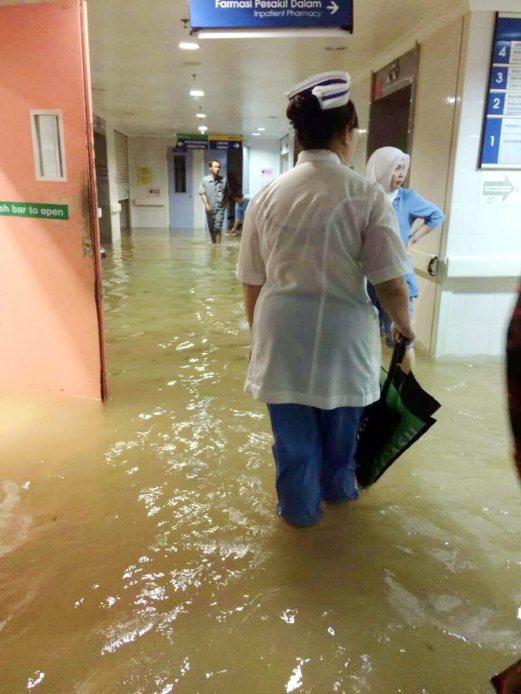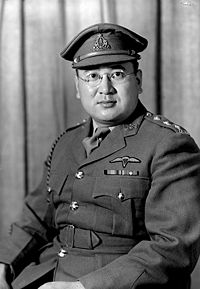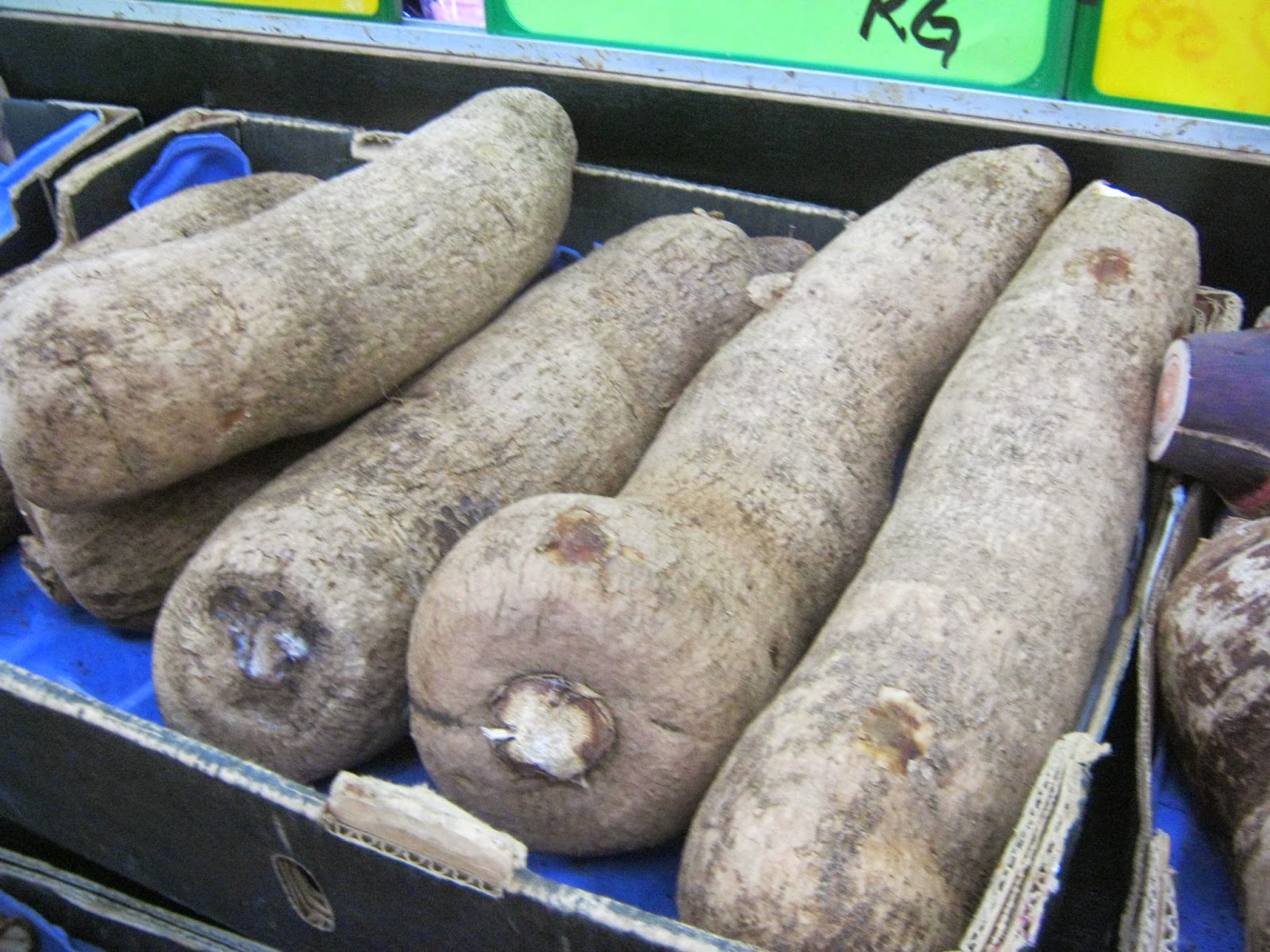Thursday, November 10, 2016
My latest book: The Playgroup
The Playgroup, paper back. ISBN 978-0-473-37871-4
Available at: Wheelers Books or from me, annkschin@Yahoo.com
eBook: Kindle Amazon ASIN: B01N0AWTOL
This book talks of a hotchpotch SAHM (Stay At Home Mums) jelled by a common denominator, the Playgroup. This book will resonate in women who went to Playgroup with their children or grandchildren. This hotchpotch include mothers of nuclear families, single families, bereaved parents, widowed, widowers, cancer survivors, volunteers, and so on. Issues like death, bereavement, cancer, adoption, fostering, and remarriage are sensitively discussed.
Sunday, July 17, 2016
Interview of Captain Roger Cheng
Cheng, Roger: my Army recollections
Description Item is an interview/narrative of Roger Cheng's experiences during World War II. Captain Cheng was trained at a secret Chinese-Canadian camp in the Okanagan. Interview took place on February 22, 1971.
Hi Ann,
Thought you might enjoy this… You can hear my dad being interviewed by Reginald Roy (1971) on the war.
It’s long but is only interview he ever did (Audio - 2 clips).
Tuesday, June 21, 2016
Phyllanthus niruri or Dukung anak.
I
have been looking for this wild herb for a long time. When we were
young, my mother would send my siblings and I to collect by pulling
these herb, roots and all. She boiled this for us to drink. I found this
growing a in pot sharing another plant in Singapore.
We called this MA ZAI CHO. Phyllanthus niruri or Dukung anak.
We called this MA ZAI CHO. Phyllanthus niruri or Dukung anak.

Monday, June 20, 2016
Chinese immigrants
In my books, From China to Borneo to Beyond, and World War II, Chinese immigrants were not considered a citizen of Sarawak.
The Brooke Government had made it very clearly the law of ius sanguinis the rule of the blood, you are a Chinese regardless of where you are born.
 I found my Father-in-law's entry certificate. He was considered an alien.
I found my Father-in-law's entry certificate. He was considered an alien.
Saturday, April 9, 2016
Friday, March 18, 2016
sweet potato rice
During the World War II, there was an embargo on ships crossing the South China Sea. There was no rice import, an staple of the people. People planted root vegetables like sweet potato/kumara, tapioca and pumpkin as staple.
Dad said when you eat this day in and day out, withour any oil or salt, you soon get very tired of it.
The world has turned around. I like sweet potatoes , and sometimes I steam them on top of the rice.
Dad said when you eat this day in and day out, withour any oil or salt, you soon get very tired of it.
The world has turned around. I like sweet potatoes , and sometimes I steam them on top of the rice.
rubber tree

some 70,000 seeds being smuggled to Kew in 1875, by Henry Wickham, at the service of the British Empire, from Brazil and stole some rubber seeds aka Hevea brasiliensi.
From those stolen seeds, they grew to supply the rubber gardens in Malaysia and Borneo.
The original rubber trees were very good, but took too long to reach a productive age. Then the good old scientist developed a smaller tree but produced more and called it high yielding tree.
My plant is a miniature tree. It's a tribute to both sets of my ancestry. It was rubber that brought them to Borneo.In 1907, my Great Grand father was scouted to lead a developing company to grow this important cash crop.
During the World War Two, trading ceased. People stitched up rubber sheets and wore them. The more enterprising ones even made shoes.
Thursday, March 10, 2016
Up side down tapioca
Manihot esculenta, with common names cassava (/kəˈsɑːvə/), Brazilian arrowroot, ... Like other roots and tubers, both bitter and sweet varieties of cassava ...
It must be properly prepared before consumption. Improper preparation of cassava can leave enough residual cyanide to cause acute cyanide intoxication and goiters, and may even cause ataxia or partial paralysis.[8] wiki
My father told me there is a
folklore that it is very important to grow them the right way up, or the
tapioca would be poisonous. It would be better not to eat them.
Tapioca is a dietary staple
in Africa, Asia and South America, and you'll also find it in beverages and
puddings in the United States. Although commercially packaged tapioca is
generally safe, the plant can be highly toxic if not prepared properly.
Tapioca naturally produces
cyanide, which is poisonous to humans; however, the cyanide may be removed
during processing. By eating poorly prepared tapioca, you may risk cyanide
poisoning according to the American Cancer Society. Symptoms include headache
and dizziness; in severe cases, you may experience convulsions or coma. It is
suggested that if a person is allergic to latex, it is best not to eat tapioca.I used this story in my World War II, about a family dying after eating the up side down tapioca.
My Ah Kung/Grandfather and his clothes
This is Myanmar's shan traditional attire. (Photo on the left) I asked permission from my friend Nang Kham Set if I can borrow the photo. She has kindly said yes.
In 1900s, all the men who left Quaang Tung to Borneo dressed like this. Frog buttons and fishermen's pants. Over time, some of them changed to wearing western clothes. My grandfather aka Ah Kung continued to wear it until he died in 1976.
When I was young, I was rather embarrassed he adhered to his Chinese culture. He was like a countrybumpkin wearing slippers/jandals.
When Bruce Lee became famous, young Sibu boys mistook my Ah Kung to be a Kung Fu Master and nagged at him to teach them Kung Fu. He was tired of them following him, one day, he opened his bamboo umbrella and they all ran away. They thought it was his Kung Fu move.
As I grew older, I am proud of my Chinese roots, and equally proud of my Ah Kung. I wrote about him in my books From China to Borneo to Beyond. In my World war II book, I fictionalised him as a hero.
In the photo, the elderly gentleman wore a fedora. I went at lengths to describe another character who wore a fedora.
Tuesday, March 1, 2016
Mum, a war bride
Rewind back to 1945:
It was the second world war, the Japanese soldiers were taking girls to be their comfort women and men to be their solider. Great Grand Ma, Ah Tai was desperate for a husband for Mum.
Ah Tai wanted the son of this Town family P.
This Town family P. didn't want a country bumpkin girl to be a daughter in law.
It was not meant to be that he should be my dad.
Instead the next best was country bumpkin Dad.
So Ah Tai chose Dad.
This country Bumpkin was the best choice after all.
He was the first in the region to get a scholarship to study in England, and became a senior government officer.
All of us were college educated. None of the children of that Townie man went abroad. Whew!!!!
It was the second world war, the Japanese soldiers were taking girls to be their comfort women and men to be their solider. Great Grand Ma, Ah Tai was desperate for a husband for Mum.
Ah Tai wanted the son of this Town family P.
This Town family P. didn't want a country bumpkin girl to be a daughter in law.
It was not meant to be that he should be my dad.
Instead the next best was country bumpkin Dad.
So Ah Tai chose Dad.
This country Bumpkin was the best choice after all.
He was the first in the region to get a scholarship to study in England, and became a senior government officer.
All of us were college educated. None of the children of that Townie man went abroad. Whew!!!!
Saturday, February 27, 2016
The flash flood

The sky is angry,
The clouds are swollen with rain.
It buckets and buckets.
In no time, there is a flash flood.
When I was young and ignorant,
We loved the flood that came to our thighs.
Dad made a makeshift raft with a petrol barrel.
We cheered and swam at our free swimming pool.
The fun didn't last.
When the water recedes,
along came the dead dogs and cats
and chicken, succumbed and gave up their ghost.
Then came the cleaning,
the yukky mud was no fun at all.
Friday, February 26, 2016
flash-floods-kuching


I wrote about flash floods in the book. This seemed incredible. This is what has happened in 2016.
Flash floods in Kuching
By ADIB POVERA - 27 February 2016 @ 10:09 AM
Read More : http://www.nst.com.my/news/2016/02/129854/flash-floods-kuching
Read More : http://www.nst.com.my/news/2016/02/129854/flash-floods-kuching
Flash floods in Kuching
By ADIB POVERA - 27 February 2016 @ 10:09 AM
KUCHING: Heavy rain since last night caused roads in the city, including
the road near Padang Merdeka, to be submerged by flash floods this
morning.
Heavy rain since last night caused roads in Kuching, including the road
near Padang Merdeka, to be submerged by flash floods this morning.
Checks by the New Straits Times showed flash floods had also inundated
other roads, including Jalan Tun Openg, Jalan Batu Lintang, Jalan
Padungan, Jalan Tabuan Dayak and the roads near the Sarawak General
Hospital.
According to Kuching Zone Fire and Rescue Station chief Tiong Ling Hi
Jalan Tabuan Dayak was among the worst affected by the downpour, with
floodwaters about 1m.
“Our men and assets are on standby now and ready to be deployed if the
situation worsens,” he said.
Read More : http://www.nst.com.my/news/2016/02/129854/flash-floods-kuching
Read More : http://www.nst.com.my/news/2016/02/129854/flash-floods-kuching
Flash floods in Kuching
By ADIB POVERA - 27 February 2016 @ 10:09 AM
KUCHING: Heavy rain since last night caused roads in the city, including
the road near Padang Merdeka, to be submerged by flash floods this
morning.
Heavy rain since last night caused roads in Kuching, including the road
near Padang Merdeka, to be submerged by flash floods this morning.
Checks by the New Straits Times showed flash floods had also inundated
other roads, including Jalan Tun Openg, Jalan Batu Lintang, Jalan
Padungan, Jalan Tabuan Dayak and the roads near the Sarawak General
Hospital.
According to Kuching Zone Fire and Rescue Station chief Tiong Ling Hi
Jalan Tabuan Dayak was among the worst affected by the downpour, with
floodwaters about 1m.
“Our men and assets are on standby now and ready to be deployed if the
situation worsens,” he said.
Read More : http://www.nst.com.my/news/2016/02/129854/flash-floods-kuching
Read More : http://www.nst.com.my/news/2016/02/129854/flash-floods-kuching
http://www.nst.com.my/news/2016/02/129854/flash-floods-kuching
Kapit
KAPIT: Last Thursday and Friday saw river transport at a standstill
as wooden debris clogged Baleh and Rajang rivers which adversely
affected navigation from Sibu to Putai, a distance of some 300km.
 This massive logjam
along Malaysia’s longest river was a cause of grave concern and drew
wide-spread discussion and speculation on the causes, especially in
Facebook and other blogs on the Internet, thus getting the attention of
foreign media and environmental groups.
This massive logjam
along Malaysia’s longest river was a cause of grave concern and drew
wide-spread discussion and speculation on the causes, especially in
Facebook and other blogs on the Internet, thus getting the attention of
foreign media and environmental groups.
A man from Sungai Melatai, a tributary of Baleh River, gave the following account of the cause.
“The cause of the ecological disaster and the extensive environmental damage has nothing to do with the rain or rising water level because on the day it happened the water level along Baleh River was low and normal. There was extensive landslide of between five and 10km on both banks of Sungai Melatai. This has nothing to do with farming activities. It is caused by human disregard for the environment through extensive logging activities.”
A child died when its mother could not send it for medical treatment in Kapit due to the logjam. Two men in a Land Cruiser died in the landslide.
“We are very angry but helpless, it is time we wake up to protect our environment,” a teacher who was a relative of the mother said.
A bank employee said political leaders should not blame the weather and appealed to the government to engage an independent body to investigate and get to the root cause because the people deserve to know the truth.
A retired army personnel and a fish breeder from Sungai Sut, who wanted to be known as ‘Robert’, lamented that many types of indigenous fish had died along Sungai Melatai to Sibu, depriving the people of their source of income and protein. According to Tuai Rumah Kilau who returned from Tunoh to Kapit on Friday morning, the massive riverbank erosion was caused by the eruption of dykes formed by sediments, wood and other debris caused by long periods of logging activities.
When contacted, the Superintendent of Land and Survey Kapit Affin Bawi said the massive landslide was the culprit. His view was confirmed by an officer from Sarawak Rivers Board.
An elderly casual worker identified as Jilan explained that the Ibans described the phenomenon as ‘baruas’ or massive landslide affecting a huge area, when nature gives way.
“All the fish would die and in my young days I used to follow my parents in the longboat to catch lots of fish that appeared on the surface”, he said.
The massive logjam prompted an onlooker to exclaim that one just could jump from one log to another to reach the other side of the river bank.
An elderly Chinese was heard murmuring to himself that this could be the first signal of ‘the end of the world’ because of massive destruction to nature caused by humans.
Among the many reasons, the phenomenon could be attributed to the heavy rainfall in the interiors of Kapit, particularly in Baleh, which had caused the river to burst its banks and grab debris and deadwood along the way.
But surprisingly a check at the Kapit waterfront revealed that the water level was low and the velocity of flow was very slow and normal.
On Friday, the situation returned to normal. The extent of damage it had caused to the shipping industry is yet to be ascertained.
http://www.theborneopost.com/2010/10/12/many-attribute-recent-logjam-at-rajang-river-to-soil-erosion-at-baleh/

JOURNEY
INTERRUPTED: Four days after the massive wood debris laid a siege on
Baleh River and Rajang River, the water at the upper reaches of Baleh is
still muddy. Many outboard engine owners claimed that their engines
were spoilt due to the sand and silt.
A man from Sungai Melatai, a tributary of Baleh River, gave the following account of the cause.
“The cause of the ecological disaster and the extensive environmental damage has nothing to do with the rain or rising water level because on the day it happened the water level along Baleh River was low and normal. There was extensive landslide of between five and 10km on both banks of Sungai Melatai. This has nothing to do with farming activities. It is caused by human disregard for the environment through extensive logging activities.”
A child died when its mother could not send it for medical treatment in Kapit due to the logjam. Two men in a Land Cruiser died in the landslide.
“We are very angry but helpless, it is time we wake up to protect our environment,” a teacher who was a relative of the mother said.
A bank employee said political leaders should not blame the weather and appealed to the government to engage an independent body to investigate and get to the root cause because the people deserve to know the truth.
A retired army personnel and a fish breeder from Sungai Sut, who wanted to be known as ‘Robert’, lamented that many types of indigenous fish had died along Sungai Melatai to Sibu, depriving the people of their source of income and protein. According to Tuai Rumah Kilau who returned from Tunoh to Kapit on Friday morning, the massive riverbank erosion was caused by the eruption of dykes formed by sediments, wood and other debris caused by long periods of logging activities.
When contacted, the Superintendent of Land and Survey Kapit Affin Bawi said the massive landslide was the culprit. His view was confirmed by an officer from Sarawak Rivers Board.
An elderly casual worker identified as Jilan explained that the Ibans described the phenomenon as ‘baruas’ or massive landslide affecting a huge area, when nature gives way.
“All the fish would die and in my young days I used to follow my parents in the longboat to catch lots of fish that appeared on the surface”, he said.
The massive logjam prompted an onlooker to exclaim that one just could jump from one log to another to reach the other side of the river bank.
An elderly Chinese was heard murmuring to himself that this could be the first signal of ‘the end of the world’ because of massive destruction to nature caused by humans.
Among the many reasons, the phenomenon could be attributed to the heavy rainfall in the interiors of Kapit, particularly in Baleh, which had caused the river to burst its banks and grab debris and deadwood along the way.
But surprisingly a check at the Kapit waterfront revealed that the water level was low and the velocity of flow was very slow and normal.
On Friday, the situation returned to normal. The extent of damage it had caused to the shipping industry is yet to be ascertained.
http://www.theborneopost.com/2010/10/12/many-attribute-recent-logjam-at-rajang-river-to-soil-erosion-at-baleh/
Sunday, February 21, 2016
Friday, February 19, 2016
COMMANDO BAY on Okanagan Lake designated an official provincial historical place under the B.C. Heritage Conservation Act

Recently the British Columbia government asked for nominations of historical places that demonstrated the contribution of Chinese Canadians to the development of the province. We are delighted to report that COMMANDO BAY on Okanagan Lake has now been designated an official provincial historical place under the B.C. Heritage Conservation Act. In WWII, Commando Bay was the location where a select team of Chinese Canadians were first secretly trained for Operation Oblivion. They were the initial group to be trained in guerrilla warfare techniques with the intent of being dropped behind Japanese lines.
Wednesday, February 10, 2016
Book Review by Helen Wong, NZChinese
Book
Review by Helen Wong New Zealand Chinese Association > Newsletter 2016 -
World
War II in Borneo, Tales of my Grandpa
It
is the anniversary of 70 years after the end of
the WWII
This
book is divided into 2 sections, Section A is the
facts
of the WWII in a village in Borneo. It has the
records
of a case study of a villager who were taken to
Burma,
suffered but survived to claim from the
Japanese, and Captain Roger Cheng from Canada
who
led a troop to liberate the villagers from the
Japanese Occupation
Section B is fictionalised recounts of the
villagers
during
these four years. It is fictionalized because the
survivors are dead now, but they left behind rich
oral
stories.
These are the stories of my ancestors.
The
most important thing that came out of writing
this
book is confirmed research from Canada
validated my Grandpa and my Dad's narration of
Captain
Fong. Captain Fong is not a figment of their
imagination. Captain Fong aka Roger Cheng was the
Captain
from Canada who parachuted down to Kapit
and
led the Allies at the surrender of the Japanese. 1
Ann Chin is an author of several books, all drawing
on
personal
experiences. If you have an interest in the
Japanese
War and the Borneo experience, this is a
must
read
http://annsuet.blogspot.co.nz/ For enquiries
annkschin@yahoo.com ISBN: 978-0-473-339005
Thursday, February 4, 2016
old outhouse
my paternal grandfather's outhouse was similar to this. It is on stilts and a giant size vat. It gave me inspiration to write a chapter on it.
ann book cv
|
Ann Kit Suet Chin is a New Zealand Chinese writer. She was born in Sibu, Sarawak, Malaysia. She attended Methodist Primary and Secondary School in Sibu. She graduated from Windsor University in Canada, Auckland University and Auckland University of Technology.
Ann is the fourth child of the late John Chan Hiu Fei and Mary Kong Wah Kiew. She is married to Chin Chen Onn, PhD. She has three surviving children, Deborah, Gabrielle and Sam. Her third child, Andrew died when he was a baby and is the inspiration of her first book.

作者 陈洁雪
洁雪是新西兰的华人,出生于马来西亚砂拉越的诗巫市。早年在诗巫卫理小学和卫理中学受中小学教育。大学毕业于加拿大的温舍大学、新西兰的奥克兰大学和奥克兰科技大学。
洁雪是已故陈鹞飞夫妇的女儿,家中排行第四。
This is a
hundred-year-old journal of two families, the Chans and the Kongs. It traces
the first movement in 1907 from Kwang Zhou, China to the jungles of Borneo.
It is a six-generational record with the second wave of movement to England,
Canada, Japan, Singapore, Australia, USA ...
|
|||||||||||||||||||||||||||||||||||||||||||||||||||||||||
网址:http://annkitsuet-chinchan.blogspot.co.nz/2015/04/ann-in-chinese.html
http://annkitsuet-chinchan.blogspot.co.nz/2015/11/ann-book-cv-november-2015.html
http://annkitsuet-chinchan.blogspot.co.nz/2015/11/ann-book-cv-november-2015.html
Subscribe to:
Posts (Atom)


















